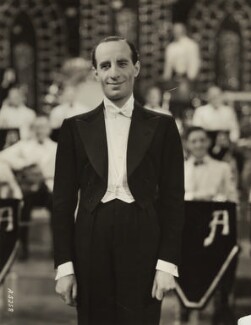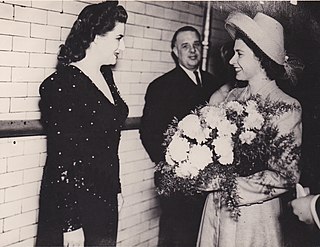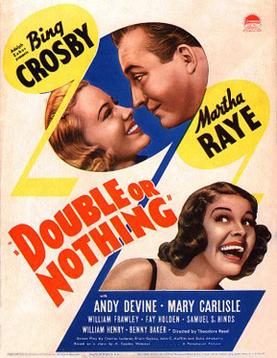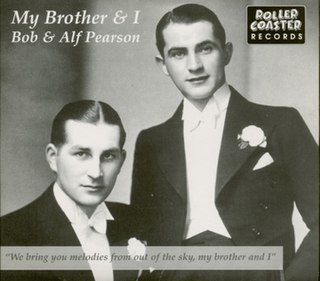
Albert Allick Bowlly was a vocalist and jazz guitarist who was popular during the 1930s in Britain. He recorded more than 1,000 songs.

Belinda Jo Carlisle is an American singer. She gained fame as the lead vocalist of the Go-Go's, the most successful all-female rock band of all time, and went on to have a prolific career as a solo artist.

Jack Hylton was an English pianist, composer, band leader and impresario.

Violet Helen Carson, OBE was a British actress of radio, stage and television, and a singer and pianist, who had a long and celebrated career as an actress and performer during the early days of BBC Radio, and during the last two decades of her life as the matronly Christian widow, town gossip and elderly battle-axe Ena Sharples in the ITV television soap opera Coronation Street. She was one of the original characters from the series debut in 1960 and would feature in the role for twenty years.

Elsie Janis was an American actress of stage and screen, singer, songwriter, screenwriter and radio announcer. Entertaining the troops during World War I immortalized her as "the sweetheart of the AEF".
"Sweetheart" is a song originally recorded by American singer Rainy Davis. It was written by Davis and Pete Warner, and produced with Dorothy Kessler. The track was released in 1986 by independent record label SuperTronics as a single from Davis's 1987 studio album Sweetheart. A freestyle, hip hop pop, and synth-funk song, "Sweetheart" appeared on R&B and dance music-based record charts in the United States.

Benjamin Baruch Ambrose, known professionally as Ambrose or Bert Ambrose, was an English bandleader and violinist. Ambrose became the leader of a highly acclaimed British dance band, Ambrose & His Orchestra, in the 1930s.

Sam Browne was an English dance band singer, who became one of the most popular British dance band vocalists of the 1930s. He is remembered for singing with Jack Hylton and with Ambrose and his Orchestra, at the Mayfair Hotel and Embassy Club, with whom he made many recordings from 1930 to 1942, and for his duets and variety performances with the singer, Elsie Carlisle.

Anne Shelton was a popular English vocalist, who is remembered for providing inspirational songs for soldiers both on radio broadcasts, and in person, at British military bases during the Second World War. During the 1950s and 60s, Shelton had some success on the UK Singles Chart, topping it in 1956 with "Lay Down Your Arms".

Theodore Salvatore Fiorito, known professionally as Ted Fio Rito, was an American composer, orchestra leader, and keyboardist, on both the piano and the Hammond organ, who was popular on national radio broadcasts in the 1920s and 1930s. His name is sometimes given as Ted Fiorito or Ted FioRito.

"Band of Gold" is a song written and composed by former Motown producers Holland–Dozier–Holland and Ron Dunbar. It was a major hit when first recorded by Freda Payne in 1970 for the Invictus label, owned by H-D-H. The song has been recorded by numerous artists, notably competing 1986 versions by contrasting pop singers Belinda Carlisle and Bonnie Tyler, and a 2007 version by Kimberley Locke.

British dance band is a genre of popular jazz and dance music that developed in British dance halls and hotel ballrooms during the 1920s and 1930s, often called a Golden Age of British music, prior to the Second World War.

Double or Nothing is a 1937 American musical comedy film directed by Theodore Reed and starring Bing Crosby, Martha Raye, Andy Devine, Mary Carlisle and William Frawley. Based on a story by M. Coates Webster, the film is about a dying millionaire who instructs his lawyer to drop four purses on the streets of New York City, which are found and returned by four honest people. According to the will, each of them is given five thousand dollars, which they must double within thirty days in order to claim one million dollars. Greedy relatives, who were cut from the will, try to thwart each one's plans. The film features the popular song "The Moon Got in My Eyes".

Martha Carson, born Irene Amburgey, was an American gospel-country music singer most popular during the 1950s.

Hollywood Canteen is a 1944 American musical romantic comedy film starring Joan Leslie, Robert Hutton, Dane Clark and features many stars in cameo roles. and produced by Warner Bros. The film was written and directed by Delmer Daves and received three Oscar nominations.

Dame Vera Margaret Lynn was an English singer and entertainer whose musical recordings and performances were very popular during World War II. She is honorifically known as the "Forces' Sweetheart", having given outdoor concerts for the troops in Egypt, India and Burma during the war as part of the Entertainments National Service Association (ENSA). The songs most associated with her include "We'll Meet Again", "(There'll Be Bluebirds Over) The White Cliffs of Dover", "A Nightingale Sang in Berkeley Square" and "There'll Always Be an England".
Harry Lewis was an English saxophonist and clarinettist, who was best known as the husband of singer Vera Lynn.

Bob and Alf Pearson were an English musical variety double act, consisting of brothers Robert Alexander Pearson and Alfred Vernon Pearson, who were mainly known for their singing of songs as a duo in close-harmony. Their career together lasted over 50 years, spanning stage, radio, television and gramophone records.
Mary Lee was a Scottish singer, variety performer and broadcaster whose career spanned the 1930s to the 1990s. She achieved early recognition whilst still a teenager as a vocalist with Roy Fox's dance band, which was one of Britain's most popular in the interwar period. At the time of her death, Lee was the last surviving singer who had been active with the British dance bands in the 1930s, the heyday of their popularity. She later became known in Scottish variety through performing with her husband, comedian Jack Milroy, and presented an award-winning programme on Radio Clyde in the 1990s.
Helen Clare was a British singer who was well known in the 1930s and 1940s through her work in variety, radio, television and recording. Clare worked extensively in light entertainment, appearing on BBC Radio and recording with British dance bands. Her distinctive soprano voice saw her working with some of the biggest names of the era, including bandleaders Jack Jackson and Henry Hall. She was one of the last surviving British singers who had been active in the 1930s.















